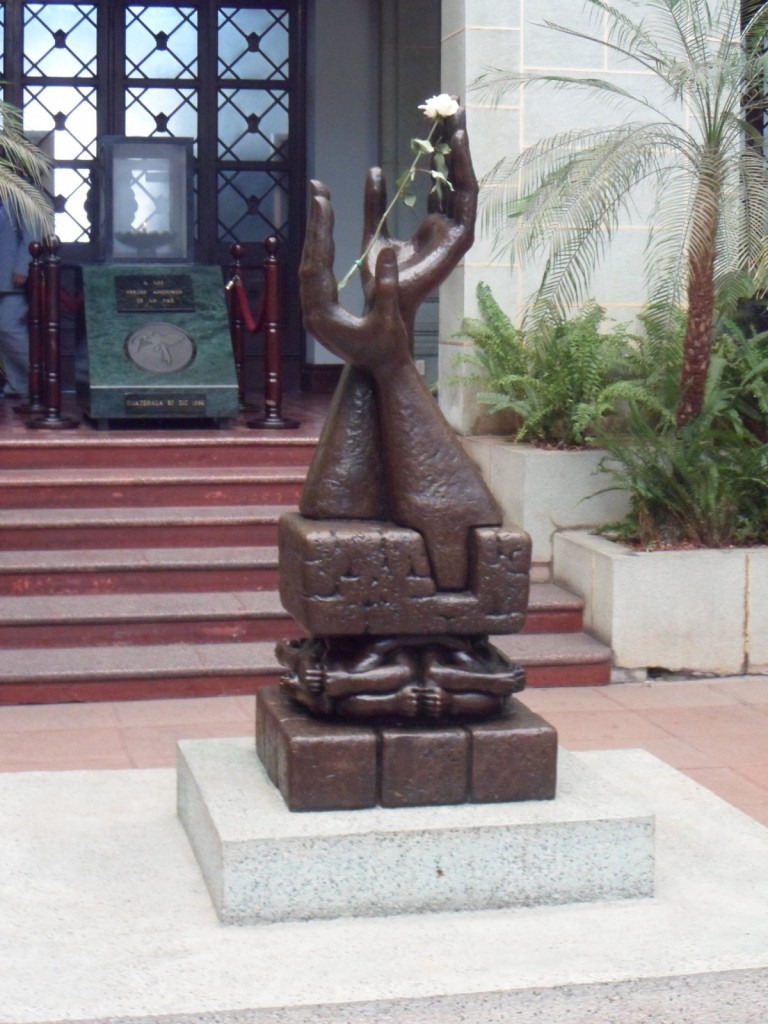Until 1996, Guatemala was in the midst of a brutal Civil War. This sculpture in the Presidential Palace of Guatemala City is a reminder of that troubled past and symbolic of a hopeful peaceful future.
In the same way that conflict/disasters can hamper and set-back development efforts, conflict can also set-back disaster risk reduction and management. Even once finished, past conflicts can erode trust between different groups. High levels of trust are a crucial factor in both preparing for and responding to disasters. In thinking through approaches to disasters, for example volcanic crises, in any given area, it is important to think about the implications of historical events and more recent events. We can undertake brilliant geological assessments of landslide prone slopes, volcanic activity or seismic vulnerability – but the erosion of trust due to previous conflict (or other factors) may prevent these being acted upon. Re-building and maintaining trust is essential and should be taken seriously by all involved in disaster reduction.
(Credit: Geology for Global Development, 2015)
—
Each Friday we are publishing an image from Guatemala to promote our ‘100 x 100’ fundraising campaign. We are working with students, recent graduates and others in the UK to raise money to support efforts to reduce the impact of volcanic hazards in Guatemala.
Find out more: www.gfgd.org/guatemala
Register your interest: Submit your information here

